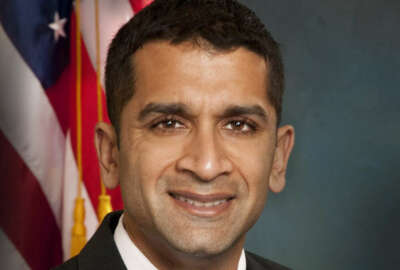USDA wants employees and vendors who can take them into the future of CX
Getting information from a federal website or agency without difficulty is still not a reality for many Americans. USDA wants IT folks who can "speak" non-IT la...
Getting information from a federal website or agency without difficulty is still not a reality for many Americans. Better customer experience is a major priority of the President’s Management Agenda, which calls for “simple, seamless, and secure customer experience, on par with or more effective than leading consumer experiences” regardless of people’s age, location, digital savvy, disability, education or English proficiency.
To do this, the PMA calls for first improving customer experience (CX) offered by 35 High Impact Service Providers (HISPs), which are large-scale, high-impact public-facing services with the potential to raise the bar for CX across government.
Five Agriculture Department entities are considered HISPs: the Farm Services Agency, the Forest Service, the Food and Nutrition Service, the Natural Resource Conservation Service and Rural Development.
Speaking to ACT-IAC’s virtual Federal Insights Exchange on today, USDA Chief Information Officer Gary Washington said the department’s CX officer is working with the deputy secretary to lead the way and carry out the directives of President Joe Biden’s executive order on federal customer experience from December. Washington said he was “excited” about HISP-related work ongoing in the Food and Nutrition Service, and farm loans under the FSA in particular, although he did not give specifics.
Washington said that his office wants to hire people with strong data skills, cybersecurity skillsets and the ability to “talk” to non-IT people.
“Rather than have somebody hide in a closet somewhere, they’re going to have to be able to actually speak to people about their needs. Maybe from a business standpoint and data perspective, and be able to make sure that that becomes real, in terms of somebody’s IT journey,” he said.
During the virtual chat, Nicole Blake Johnson, director of Employee Communications & Engagement at Granicus, said that emotional intelligence is an area with major skills deficits for program managers. She asked Washington if the IT community has underestimated the power of communication and listening, to which he said it is important that people feel like someone cares about their needs.
“You need to be able to listen, speak and have a conversation. You’d be surprised how many people — I’m not going to say they can’t do it but they could be a little stronger in communication, in those areas,” he said.
It can be surprisingly difficult to communicate what one truly needs, he said. Conversations about what innovations or new technologies to implement must involve stakeholders, “and find out what they’re actually trying to achieve, what their requirements are, and as an IT professional provide them with the best advice possible on a way forward.”
Prior to the pandemic, USDA had regular vendor engagement sessions. Washington said he hoped those could return but he tries to work with the Office of Small and Disadvantaged Businesses and the procurement office.
“I have a lot of vendors, some of them email me on a daily basis and responding to that is not realistic and it’s not sustainable,” he said. “So we have to think about some method or structure to engage vendors in the appropriate fashion to give them some time and make sure that they’re aware of opportunities available to everybody. But hopefully we can get our arms around that soon.”
For those wishing to engage with USDA, Washington advised they focus on the department’s future rather than its past. They are interested in partnering with vendors who can help USDA move forward and change, rather than remain entrenched in outdated methods, he said.
“Sometimes I have people come to me and they ask me questions about USDA, and you can look that up on the website. But I’d rather have a conversation about what value do you bring to USDA, what can you help us do?” he said.
Copyright © 2024 Federal News Network. All rights reserved. This website is not intended for users located within the European Economic Area.
Amelia Brust is a digital editor at Federal News Network.
Follow @abrustWFED






